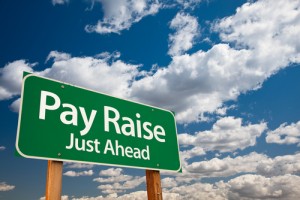(ThyBlackMan.com) I don’t know about you, but over the course of my career, I have certainly had the occasion to realize I was underpaid for the work I was doing. In fact, the first time I was offered a job out of school, doing sports public relations, the salary they offered was abysmal. I tried to figure out how I could possibly make it on that salary, but the only way I could get by every month on that salary was for my parents to subsidize the company’s pitiful offer. I hadn’t gone all the way through grad school to have my parents paying some of my bills. It didn’t occur to me to tell the company I’d come to work for them if they paid me more money, so I simply turned the job down. I shake my head just thinking about it.
If you watched last week’s State of the Union or saw any of the resulting frenzy of discussion about women getting equal pay for equal work, you’ve heard the statistic that women earn on average about $.77 for every dollar a man makes. It is a disturbing trend indeed.
Under-earning is the distinct condition of being paid less money for doing exactly the same work that someone else is doing for more money. It is often presented as purely an issue of sexism. But the issue is deeper than that. It is something I talk about briefly in Happy Women Live Better in the chapter on the happiness trigger I call “financial savvy.”
The issue is this: Too often, women don’t ask for more money. Men do.
Consider this excerpt from the book:
One of the rarely discussed reasons for the persistent pay gap between men’s and women’s pay could be the fact that men are much more likely than women to negotiate. In a study of almost 2,500 job seekers by the National Bureau of Economic Research, it was found that when an employer does not explicitly state that wages are negotiable, men are more likely than women to negotiate. So the pay gap between men and women is significantly more pronounced in jobs where wage negotiation is ambiguous.
There are certainly gender disparities that are rooted in institutionalized prejudice and the devaluing of jobs that are traditionally held by women. However, successful women think differently. They don’t just focus on problems beyond their immediate control and see themselves as victims. They ask, “What do I have control over that can positively impact my situation?” You control whether or not you negotiate. You control whether you speak up and ask for more. You control whether you settle for less than you deserve, or have the courage to pursue opportunities that will boost your income. Not asking is a bad habit – one you can change right away.
right away.
I’ll never forget the moment a business owner who’d spent years booking speakers told me I could charge double what I was asking. I looked at him, stunned. “You’re already there,” he said. “You just need to ask for more.” The idea of asking for twice what I’d been charging felt both exciting and scary. “Was he sure?” I thought. But I knew the answer. He’d booked hundreds of speakers. He knew what he was talking about. And I’d seen the speakers who were making more. They weren’t better speakers than I, just better negotiators!
I went away from the meeting and halfway took his advice. Not yet bold enough to ask for double, the next time a major company called, I quoted a rate that was 50% higher than my previous fee. The decision maker didn’t bat an eye. Just like that, a 50% increase for doing exactly the same work!
A year later, I made the leap he suggested and doubled my fee. Clients didn’t flee. In fact, I got more speaking opportunities than ever. Raising my fee had also led me to upgrade my marketing, and work harder to provide even more value. It was a turning point for me personally, professionally and financially. Today, perhaps you were reading these words because it is time for a turning point of your own.
My challenge to you:
Ask for more.

















Leave a Reply